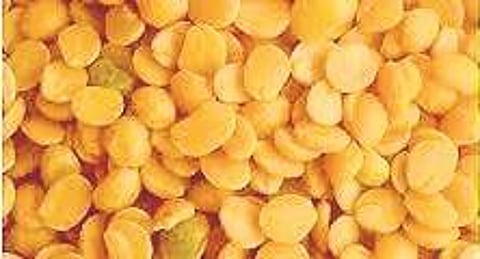

BHUBANESWAR: The June 2 directive of the Central government to states to impose stock limit on arhar (harada) and black gram (biri) till end of October notwithstanding, the frequent jump in the price of harada dal has hit consumers hard.
One of the most popular dal in households, arhar was selling at Rs 130-140 a kg a week back. However, the retail price of the dal is Rs 155-160 a kg at present. The wholesale price of the pulse has increased by more than Rs 1,000 per quintal within a week. Describing the sudden jump in the price of arhar dal as unprecedented, general secretary of Odisha Byabasayee Mahasangha Sudhakar Panda said it is the outcome of hoarding through cartelisation of corporate houses and big chain retailers.
“The annual requirement of all kinds of pulses in Odisha is around 9.5 lakh quintal. The state’s production of pulses meets only 20 per cent of the total consumption while 80 per cent is sourced from other states. The state’s traders have a limited role to play as everything depends on the price of the source markets,” Panda said.
Admitting unprecedented rise in price of arhar dal has its impact on other pulses, he said big retail chains control the prices of foodgrains in the absence of any regulatory mechanism. “This is a well-planned design by big corporate houses to keep small and retail traders across the country on tenterhooks. A sudden spurt in the price of a commodity followed by a quick fall will kill small and retail traders. They cannot recover the price of a commodity bought at higher cost if the price falls suddenly,” Panda said.
The All India Traders Association has submitted a draft proposal to the Centre to bring a legislation to regulate prices of all edible commodities to save consumers from price shock. The matter is pending for more than six months as the government does not want to antagonise big corporates and importers just before elections, he added.
Other popular pulses like moong, chana, masoor and matar have a seen a marginal increase in prices but what is worrying is the rise in cost of rice and wheat and their derivatives, he said. While vegetable prices have started falling especially tomato, onion which was selling at Rs 25-30 a few days back is now for sale at Rs 35 a kg. The good news is that tomato is now available at Rs 50 a kg.
Pricey pulse
Price of arhar has gone up to Rs 155-160 per kg
Wholesale price has increased by over Rs 1,000 per quintal within a week
State’s production of pulses meets only 20 pc of the total consumption